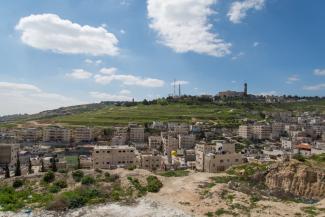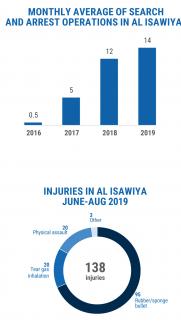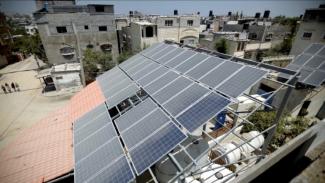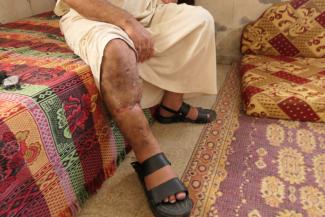July 2019 recorded nearly 20,000 exits of Palestinians from the Gaza Strip via the Israeli-controlled Erez crossing, a four-year high. Almost two-thirds of these exits were by people carrying ‘traders’ permits, although many were reported to be labourers employed in Israel, whose entry has been officially banned since 2006. Also in July, the number of entries and exits to and from Gaza via the Rafah Crossing with Egypt (over 18,000) was the highest since 2014. Finally, almost 800 trucks of goods entered Gaza from Egypt through the Salah ad Din gate during the month, the largest figure recorded since this gate began operating in early 2018.
The Monthly Humanitarian Bulletin | August 2019
In Gaza, the pollution levels of wastewater discharged to the sea during the first half of 2019 declined by 23 cent compared to 2018. 148 people injured during the Gaza demonstrations since March 2018 have undergone limb amputations, mostly due to bone infections resulting from inadequate treatment. Wave of police raids in Al ‘Isawiya continued during August; less that 2 per cent of people arrested have been indicted.
In this document
Between June and August 2019, there was a sharp increase in violent clashes between Palestinian youths and Israeli forces in the Al ‘Isawiya neighbourhood of East Jerusalem. As of 21 August, these clashes have resulted in the killing of one Palestinian and the injury of at least 137, a significant increase compared to previous periods. Four Israeli policemen were also injured. During this period, OCHA recorded the arrest of 218 residents, including 53 children, roughly the same as in previous periods, while media reports estimated this figure at over 300. The daily life of the over 18,000 Palestinians living in Al ‘Isawiya has been severely disrupted, with a particularly negative impact on children and on commercial activities.
The increase in electricity supply in the Gaza Strip since October 2018 has improved the delivery of water and sanitation services, while reducing expenditure on fuel for back-up generators for households and businesses. This increase has also reduced the need for the emergency fuel provided by the UN to avert the collapse of key service providers.
In Gaza, severe limb injuries caused by live ammunition have created a substantial burden on the already overstrained health system. Between 30 March 2018 and 31 July 2019, more than 8,000 Palestinians have been injured by live ammunition by Israeli forces during the “Great March of Return” (GMR) demonstrations along the fence between Gaza and Israel. According to the oPt Health Cluster, 87 per cent of these are limb injuries, with injuries to the abdomen and pelvis accounting for approximately five per cent.













